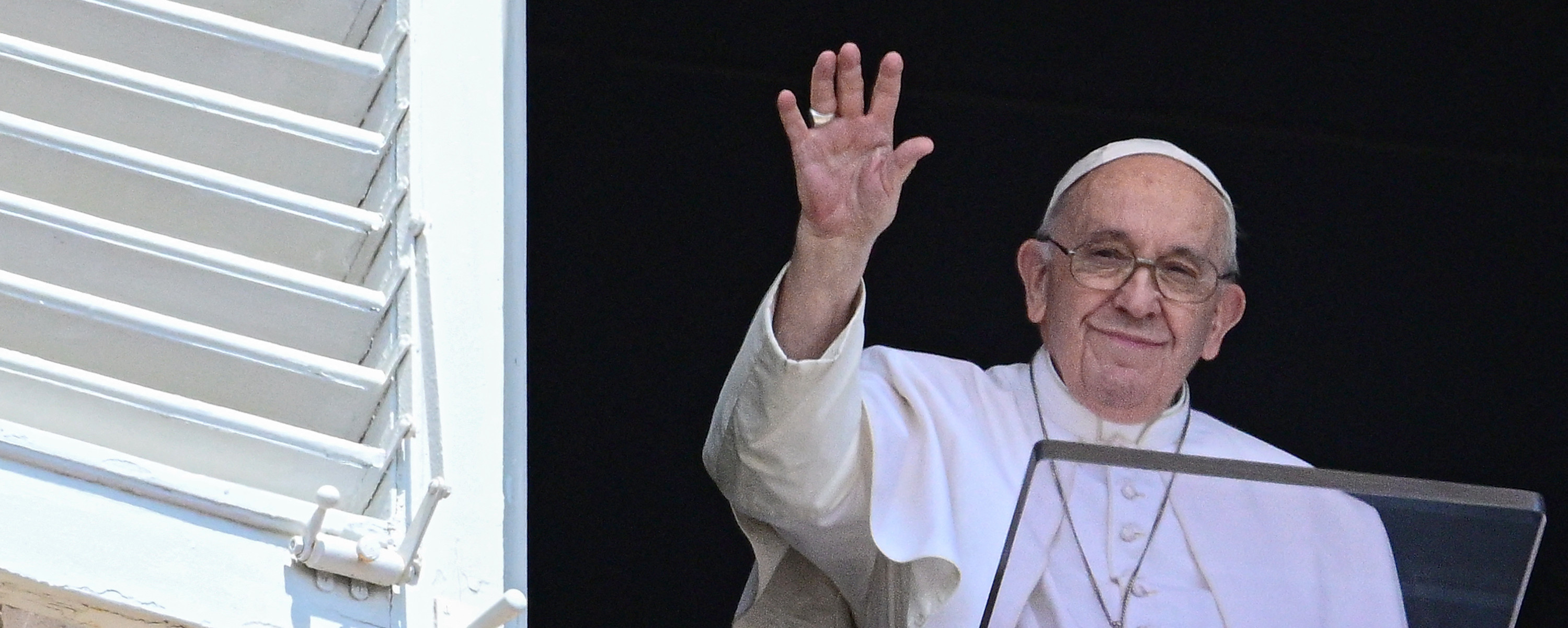After a long silence on the human rights crisis in Nicaragua, Pope Francis finally spoke out on Sunday, August 21. His message was one of solidarity, proposing the establishment of dialogue to find a peaceful way out of the national crisis.
The Pope’s long-awaited message was needed to soothe the pain of the Catholic Church in Nicaragua as it suffers the persecution of a cruel dictatorship. His words' vagueness and ambiguity, though, aren’t enough to restore hope to a country yearning to recover its freedom and democracy.
The Pope expressed his “pain and worry” over what he called the “situation created in Nicaragua, involving people and institutions.” He didn’t mention by name Monsignor Rolando Álvarez and the other seven clergy who’ve been jailed, nor did he explain what had caused him to feel those emotions.
Nicaragua is mired in a crisis that the international human rights organizations under the OAS and the UN have called a “de facto police state.” Citizens' rights to assemble, mobilize, and be informed were suspended four years ago by a regime accused of crimes against humanity, with over 300 assassinations left uninvestigated, and some 190 political prisoners currently in jail. These conditions have provoked the exile of over 200,000 people.
Pope Francis also called for “an open and sincere dialogue, through which the foundations for respectful and peaceful coexistence could yet be found.” He failed to mention who could be the eventual participants in this dialogue, but it’s worth recalling that his former representative in Nicaragua, Apostolic Nuncio Waldemar Stanislaw Sommertag, was expelled from the country by the regime in March. Sommertag had participated as an international witness in the last national dialogue, held in 2019 between the government and the Civic Alliance for Justice and Democracy. The Pope should therefore well understand why that dialogue failed, so that his new proposal might have greater possibilities of success and not end, yet again, in national frustration.
On March 29, 2019, the second national dialogue concluded with two agreements signed by the government representatives, the civic opposition, and international witnesses. The first agreement for the government to free every political prisoner was not upheld. They released over 300 such prisoners, but kept 120 in jail. Two years later, as the November 2021 elections were approaching, the regime once again filled the jail cells with political and civil society leaders, among them seven presidential hopefuls subjected to solitary confinement and torture in the El Chipote prison.
The second accord signed by Nicaraguan foreign minister Denis Moncada following those talks was an “agreement to strengthen citizen rights and guarantees.” The government committed itself to suspending the police state and reestablishing all constitutional rights. Daniel Ortega not only failed to do so, but reinforced the police state with new repressive laws passed in 2020. The regime even jailed four of the Civic Alliance members who signed the accord: political prisoners Juan Sebastián Chamorro, Jose Pallais, Max Jerez and José Adán Aguerri, unjustly sentenced to up to 13 years in prison.
In order to hold an “open” dialogue, as the Pope proposes, the government of Daniel Ortega must first unconditionally free all the political prisoners, including Monsignor Rolando Álvarez and the seven religious figures currently held in El Chipote.
For such a dialogue to be sincere, as the Pope also proposes, the government must also comply with the agreements it signed in March 2019 and order the suspension of the police state, restoring the freedoms of movement, assembly, press, expression, association, religion, and university autonomy.
Only without political prisoners and without a police state will the “open and sincere” dialogue prescribed by Pope Francis become possible. It should also include international monitors of the fulfillment of the accords. Otherwise, if the Vatican’s strategy is to appease the Ortega-Murillo dictatorship by offering them the banishment or indefinite house arrest of Monsignor Rolando Álvarez, it will bury Nicaragua’s last hope.
A dialogue to “set the foundations for peaceful coexistence,” as Pope Francis has urged, will only return hope to Nicaragua if it truly charts a new course, culminating in negotiations for a reform to set new, free elections.
Editor's Note: This column was originally published in Confidencial Nicaragua and translated by the Havana Times.

